 Petzlover
Petzlover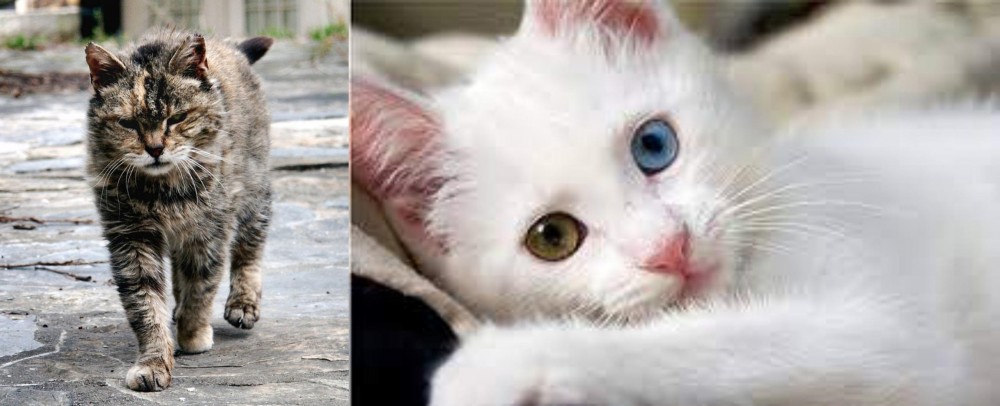 Farm Cat is originated from United States but Van Kedisi is originated from Turkey. Both Farm Cat and Van Kedisi are having almost same weight. Both Farm Cat and Van Kedisi has same life span. Both Farm Cat and Van Kedisi has same litter size. Both Farm Cat and Van Kedisi requires Moderate Maintenance.
Farm Cat is originated from United States but Van Kedisi is originated from Turkey. Both Farm Cat and Van Kedisi are having almost same weight. Both Farm Cat and Van Kedisi has same life span. Both Farm Cat and Van Kedisi has same litter size. Both Farm Cat and Van Kedisi requires Moderate Maintenance.
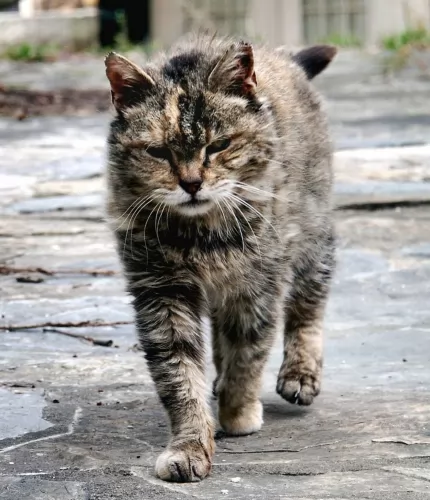 Known also as the Barn Cat, this domestic cat is of a mixed breed. The very name ‘farm cat’ is referring to a general kind of cat that lives in an almost wild state on farms and agricultural properties.
Known also as the Barn Cat, this domestic cat is of a mixed breed. The very name ‘farm cat’ is referring to a general kind of cat that lives in an almost wild state on farms and agricultural properties.
Possibly, their role in keeping rodents at bay was how they came about – domesticated to keep rodents away from grain crops.
When you do research you find that there is archeological evidence to suggests that these farm cats have been around since about 7500 BC. Most barn cats fall under the domestic shorthair or domestic longhair categories.
These cats live in a variety of conditions and some of them get their food solely from the rodents they catch. Others are tame with access to supplemental cat food as well as veterinary care.
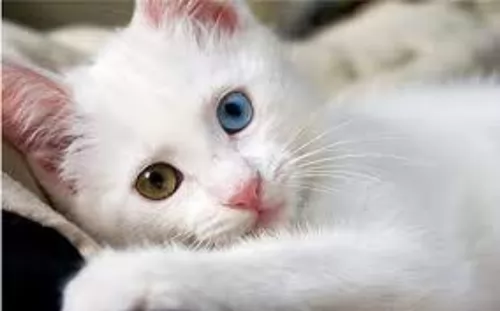 The Van Kedisi cat or Cat of Van as it is also known is a domestic cat that hails from the Lake Van region of Turkey.
The Van Kedisi cat or Cat of Van as it is also known is a domestic cat that hails from the Lake Van region of Turkey.
There are historians who agree that the domestic cat originated in Egypt. The actual cat was developed in the United Kingdom from a host of cat types from Turkey. During the late 1990s the Van Cat became an informal municipal symbol of the city.
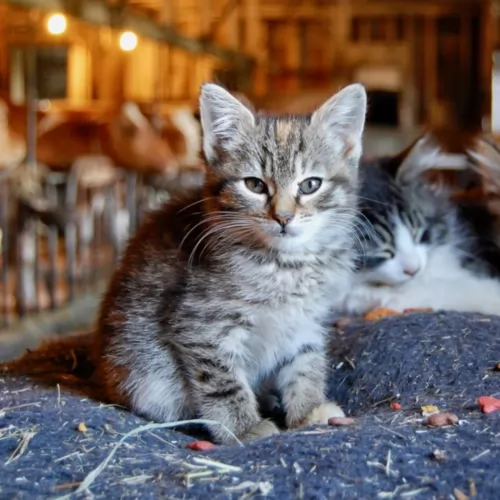 Farms cats are also members of domestic cats but it’s just that they are usually not socialized and they run away from people.
Farms cats are also members of domestic cats but it’s just that they are usually not socialized and they run away from people.
Farm cats have different histories and there is really no one-size-fits-all description of them.
They can weigh anything from 2 to 8kg. They can live to be anything between 10 and 20 years of age. Some of them are large, some small, some are solid colored while others are bi-colored and patterned. Their coats differ too and you can find short- and long-haired varieties among your farm cats
Their eyes and ears will also be in any shades and sizes and these cats are usually not spayed or neutered and can produce kittens that nobody is sure how they’ll turn out.
If you were to stumble across a farm cat born of unknown parents, there is no knowing what the small feline will behave like. Socialization and lifestyle play a big role in determining how a kitten will turn out but farm cats left to their own devices could be quiet, aggressive, loving, naughty, reticent, reserved, playful, lazy, shy or nervous.
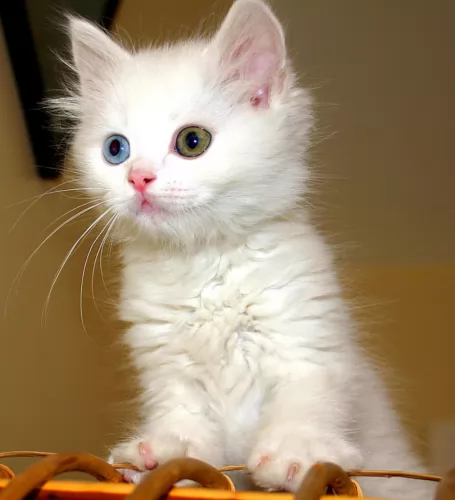 The Van Kedisi cat is a large feline with a soft, silky white coat, which he often sheds in the Summer. There is usually color on the head and tail – a yellow apricot color. The coat is descibed as seni-long.
The Van Kedisi cat is a large feline with a soft, silky white coat, which he often sheds in the Summer. There is usually color on the head and tail – a yellow apricot color. The coat is descibed as seni-long.
He can reach up to 10kg in weight. The cats are lean and long-legged and they also like to swim. The eyes are almond-shaped eyes and are often odd-colored. One eye might be green and the other blue.
Van Kedisi cats have a strong wild side to them, but in spite of this they love getting attention from their human owners. In fact, they demand it or else they can become disgruntled. It's the kind of cat that can adapt to new environments and he is intelligent enough to be able to be trained.
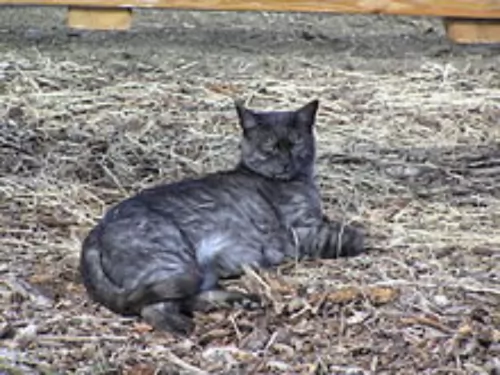 Farm cats are such wonderful animals – they just need a good chance in life like other domestic cats.
Farm cats are such wonderful animals – they just need a good chance in life like other domestic cats.
Many of them have had a hard life and it can be marvelous to open your home and heart to one or two of them and see the pleasure they bring.
They’re full of character and if you provide them with good food and a warm bed and promise to love them, you’ll no doubt be starting a solid and meaningful friendship that can enhance your life.
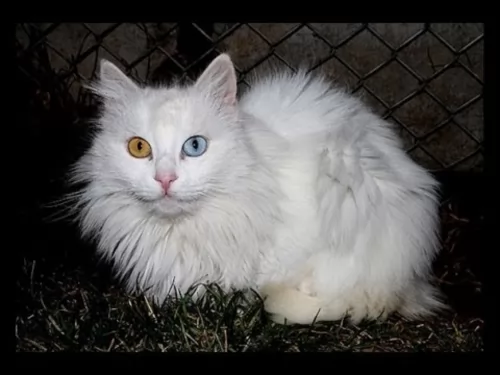 They are lively cats and love playing games with their humans. They will need stimulation from interactive toys. He also loves to leap up onto high perches and watch things from his elevated position.
They are lively cats and love playing games with their humans. They will need stimulation from interactive toys. He also loves to leap up onto high perches and watch things from his elevated position.
If you have decided to have a Van Kedisi in your home, expect things to joyful and entertaining as this cat likes to build a strong bone with his human owners.
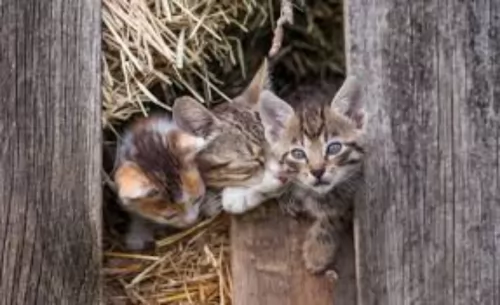 Farm cats left to fend for themselves can suffer from a host of illnesses. Eye infections are one. The cause of these eye infections is usually a virus, of which herpes, chlamydia, and Calicivirus are the most common.
Farm cats left to fend for themselves can suffer from a host of illnesses. Eye infections are one. The cause of these eye infections is usually a virus, of which herpes, chlamydia, and Calicivirus are the most common.
Your vet will certainly prescribe you some antibiotics for your kitten to help against secondary infections.
Check your farm kitten over as he is likely to have a nose full of snot as well and may even be sneezing. Take the kitten to the vet who can give him a good once-over and put him on the road to recovery.
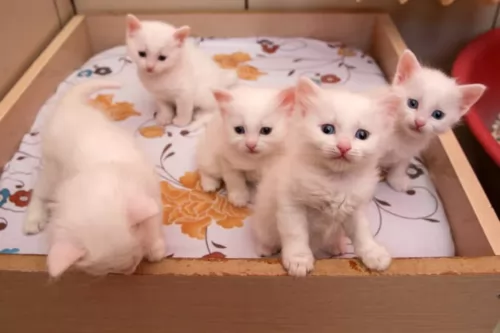 A healthy meat diet for your cat is like a ticket to good health. Cats are carnivores and they rely on you to supply them with food high in protein.
A healthy meat diet for your cat is like a ticket to good health. Cats are carnivores and they rely on you to supply them with food high in protein.
Cats battle to absorb protein derived from plants. Learn to check your food labels to ensure the food contains animal meat. Meat from chicken and tuna is good.
Regular visits to the vet when you suspect that your cat is ill will give you the chance to catch any diseases in their early stages.
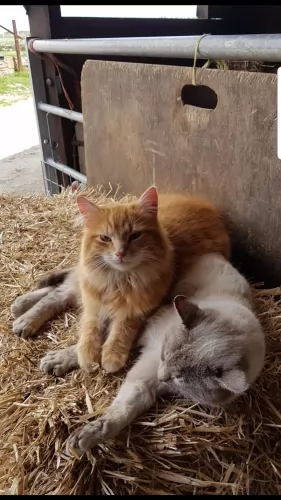 Barn cats or farm cats are not likely to have been neutered or spayed and they are just adding to the overpopulation of farm cats that can become feral cats.
Barn cats or farm cats are not likely to have been neutered or spayed and they are just adding to the overpopulation of farm cats that can become feral cats.
The average fertile cat can produce three litters every year, and with as many as 6 kittens in a litter, you can imagine how a small colony of cats can get out of control.
Sometimes cat rescue programs do a steri-drive and spay and neuter cats like this to curb the numbers. Of course, spaying and neutering can prevent many diseases as well.
If you have farm cats that have been spayed or neutered, provide them with good food and water. You can put out wet, canned cat food or dry kibble – they’ll be so pleased as most times these cats don’t even know where their next meal will come from.
You see them drinking out of puddles of water. Unfortunately, these pools are often filled with contaminants and this can also make the cats sick.
Every cat just wants a soft, warm place to sleep, and if you can, provide some warm dry hay for these farm cats. Even a cardboard box can be a haven for a cat that has never known a bed.
If you have managed to catch a farm cat kitten and you want to offer it a home, make sure to start off with veterinary care and vaccines.
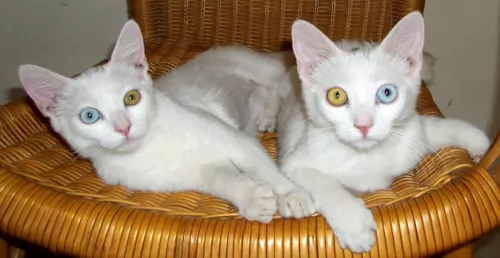 Brush your Van Kedisi each week because the semi longhair can become matted and tangled if not brushed each week.
Brush your Van Kedisi each week because the semi longhair can become matted and tangled if not brushed each week.
The Van Kedisi will need to be vaccinated. As a kitten he will need to be vaccinated against deadly cat diseases. While at the vet he will also be dewormed.
As your cat matures, you will need to make sure that he is free from parasites. Ticks, fleas, and heartworm can cause havoc with your pet and the vet can advise you on a treatment plan.
Have your cat neutered or spayed as not only will it prevent unwanted kittens, but the procedure can have health benefits for your cat too. It can eliminate the possibility of your cat getting some of the many cancers there are. Spaying and neutering also has a positive impact on your cat’s personality.
These are big, strong cats and the temptation will be to overfeed him. They enjoy their food and can easily put on weight. Obesity can bring about many different diseases in your cat.
It is up to you as a responsible cat owner to ensure your ca doesn’t put on a lot of weight but rather maintains a healthy weight. You should also make sure that your feline friend gets regular exercise through playing, walking, and even swimming. These cats enjoy a swim, particularly when it is with their human owners.
Provide your cat with attention and play with him every day. They are playful, intelligent cats and it boosts his morale to have his favorite human playing with him.
Allow opportunities for scratching and climbing. The Van Kedisi loves to climb and scratch – two natural behaviors of cats. Supply him with a scratching post and a climbing tree to get the exercise he needs.